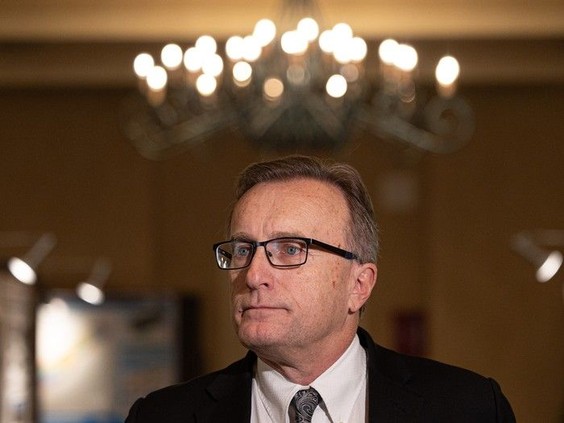
“We need the federal government to take a step back and understand that what they’re proposing is going to have a dramatic effect.”
Trillian Reynoldson, Regina Leader-Post
The Government of Saskatchewan says an emissions cap proposed by the federal government could cost the province’s oil and gas sector between $7 and $9 billion by 2030.
Speaking out against the cap, as well as proposed Methane 75 regulations, on Thursday, Minister of Energy and Resources Jim Reiter said it could be “devastating” for the provincial economy.
“We’re hoping this doesn’t come to fruition,” Reiter said in an interview Thursday. “We need the federal government to take a step back and understand that what they’re proposing is going to have a dramatic effect.”
Preliminary economic analysis showed the impact of the emission cap and Methane 75 could put 20 to 30 per cent of the province’s total production at risk by 2030, according to a news release issued Thursday.
“Both amount to a production cap by default, and represent further instances of the federal government infringing on Saskatchewan’s constitutionally protected right to develop our natural resources,” Reiter said in the release from the province. “We urge the federal government to scrap both policies, and instead focus on practical solutions that reduce emissions while supporting the oil and gas sector.”
When asked to explain how the government came to these estimates, Reiter did provide specifics, but said ministry officials have been working on “high-level estimates.” When pressed further, he said they have also had discussions with those in the industry since the province became aware of the potential policies.
The province argues the policies will negatively impact communities across Saskatchewan, significantly reducing employment, gross product, royalties and other tax revenues that fund critical public services.
“It’s not well thought out. It’s going to do so much damage to the industry without kind of looking at the overall impacts,” Reiter said.
The province also asserts that because the federal government has indicated there are no plans to apply similar treatment to imported energy products, there will be an increased reliance on oil and gas imported from countries that do not have strong environmental records.
“What this is going to do is hurt the Canadian energy industry and we’re going to be counting on more imports from other countries that quite likely care less about the environment than we do,” Reiter said. “We’re going to look at all options at our disposal and hopefully the federal government understands the problems that this is causing.”
In December, Minister of Environment and Climate Change Steven Guilbeault announced stronger restrictions on methane emissions from fossil fuels. The amended targets aim for a reduction of at least 75 per cent from 2012 levels by 2030.
at the time, Opposition leader Carla Beck said while the NDP have been clear in their concern about the reachability of federal targets, the back-and-forth over jurisdiction is not aiding in solutions.
“I think we’re being failed by both levels of government,” she said. “There needs to be a plan and it needs to be built with both the federal government and the provincial government at the table.”
Guilbeault and Minister of Energy and Natural Resources Jonathan Wilkinson also unveiled a framework that includes a national cap-and-trade system at COP28 in Dubai in December. The framework sets a goal to cap 2030 greenhouse gas emissions from oil and gas production at 35 to 38 per cent below 2019 levels, with flexible compliancy targets allowing emitting at 20 to 23 per cent below 2019 levels.
The targets are part of the federal government’s commitment to achieve net-zero emissions by 2050.
— with files by Larissa Kurz
Treynoldson@postmedia.com

